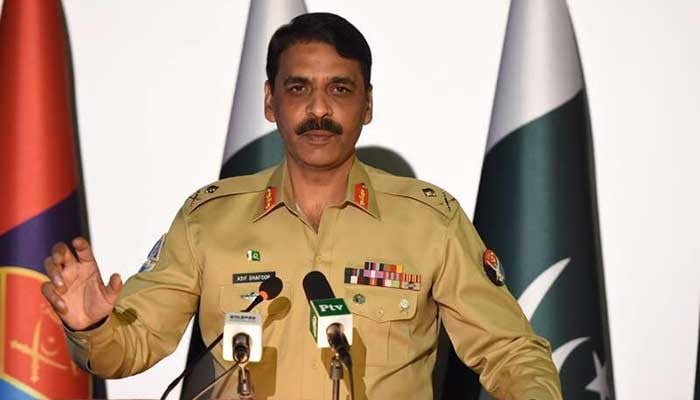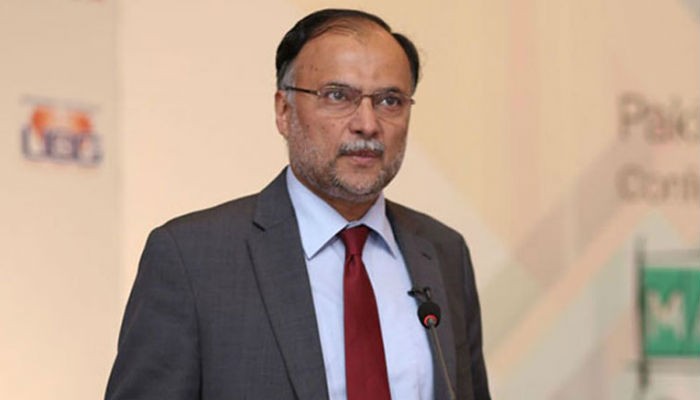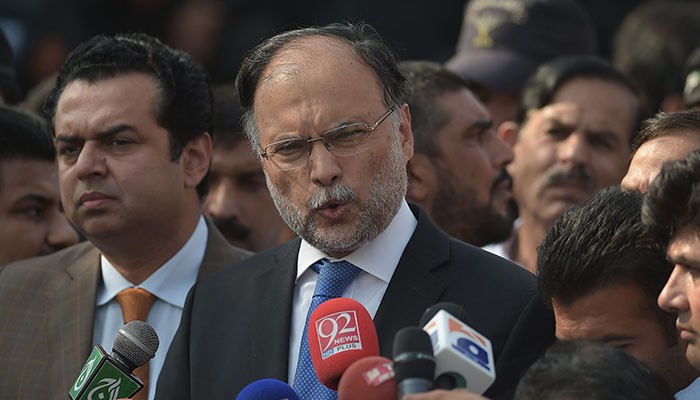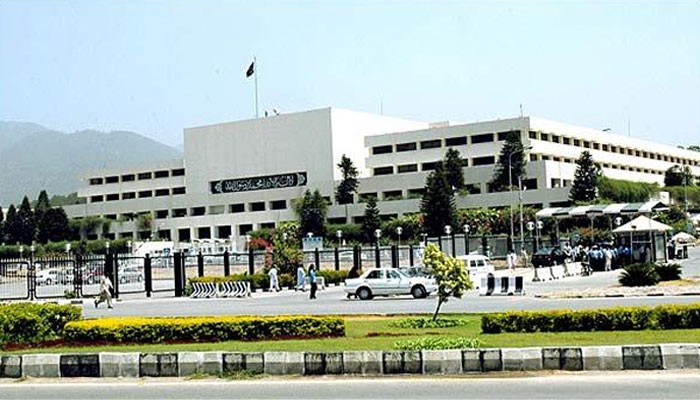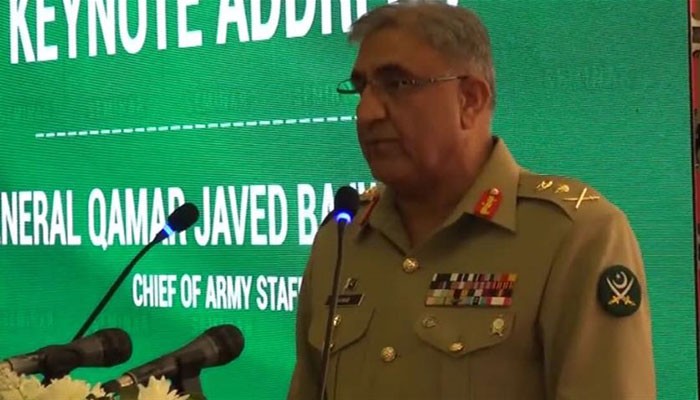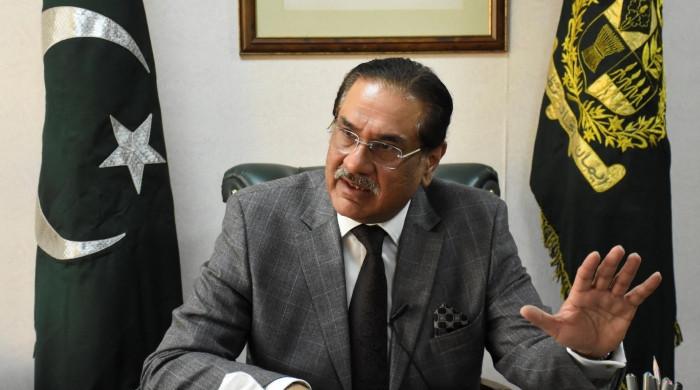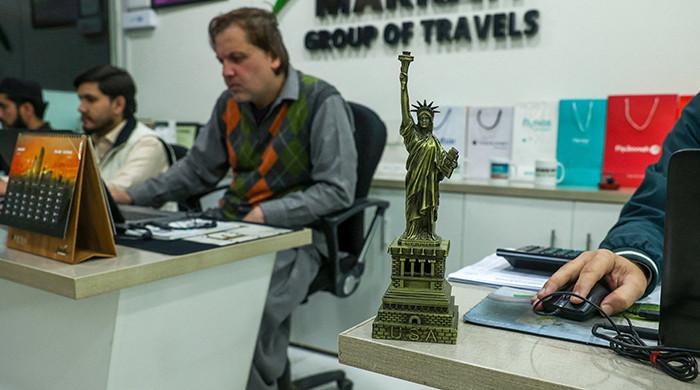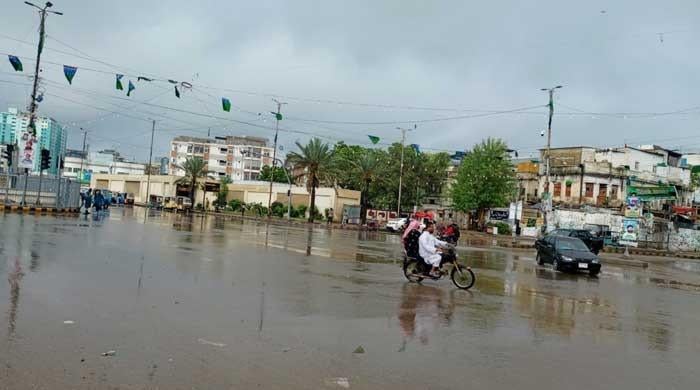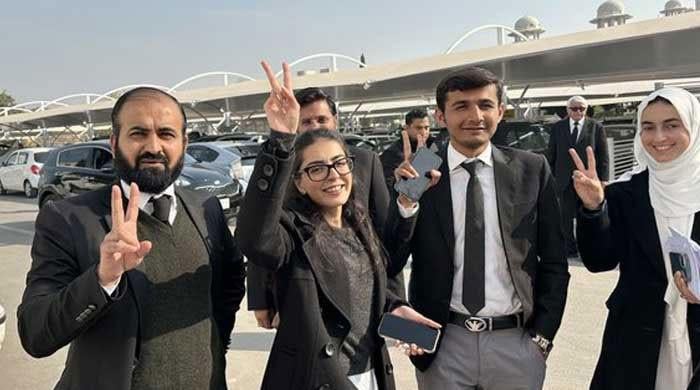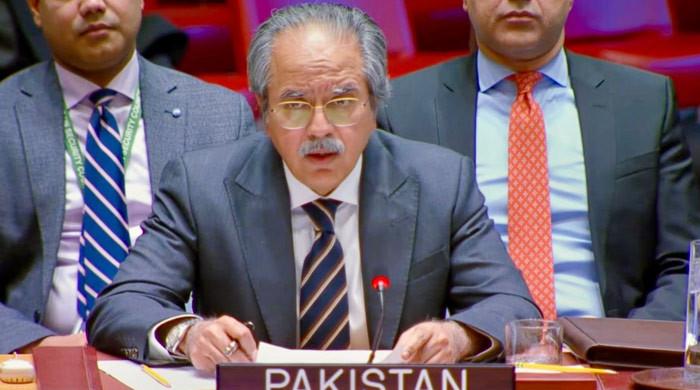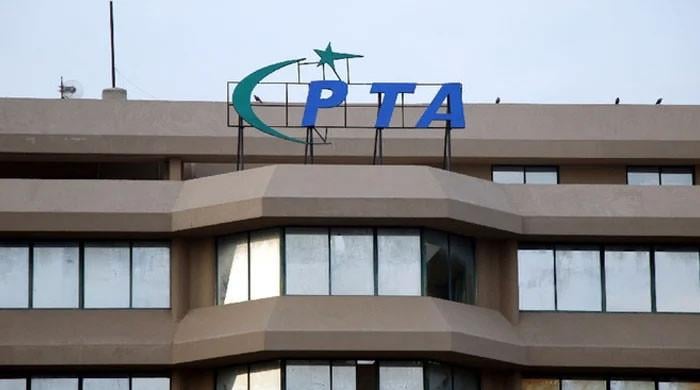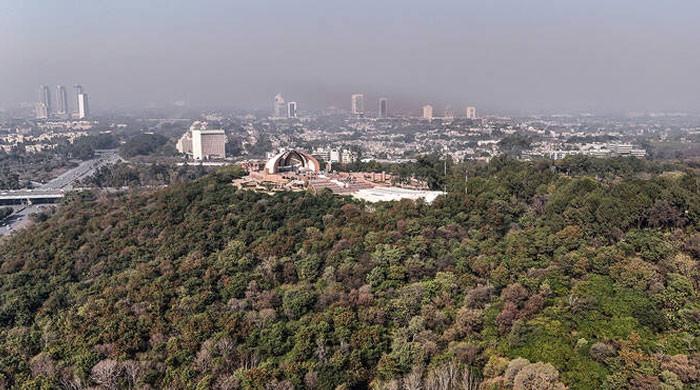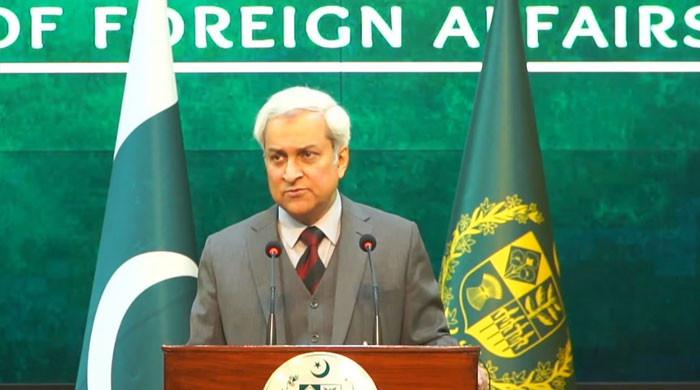We're all in same boat; have to work together: Ahsan Iqbal
Interior minister reacts to army spokesperson's olive branch following unprecedented public disagreements over state of economy
October 15, 2017
We are all in one boat. If we work together, then we’ll get to our destination. Things deteriorate if one leaves their own paddle and starts using the other's [paddle].
This was stated by Interior Minister Ahsan Iqbal after Director General Inter-Services Public Relations (ISPR) Major General Asif Ghafoor said Saturday night that the armed forces pose no threat to democracy in Pakistan.
In his remarks, given to the media prior to his departure from the US back to Pakistan, he said, "I respect the emotions of the soldiers and the nation but we have emotions too. Instead of being emotional we should work together...what I said was based on how I felt as a democrat".
Iqbal, who also holds the portfolio of the development and planning ministry, said he was discussing the positive aspects about Pakistan in a World Bank meeting when "it was said that you are saying one thing and the army something else". "So I was taken aback. But now the army spokesperson has given a clarification and I don't believe that a reply to his reply would be appropriate [now]."
Iqbal said "we will have to work together. State institutions need to be on the same page. Those who want to create misconceptions and are always looking to ignite conflict must be upset [with the recent rapprochement].
Talking about the military operations ongoing in the country, the minister said the army is doing good work in [Operation] Radd-ul-Fasaad and giving sacrifices. He added that the government is paying for the operation by tightening its belt.
He also cautioned that "if we start discriminating on race or language then Pakistan will be divided".
All Pakistanis are like a plant, with various colours; which is its beauty, he said, adding that instead of making CPEC controversial the Kashmir issue should be resolved.
'Army supports democracy'
The spokesperson for the army, Maj Gen Ghafoor, said on Saturday that the armed forces pose no threat to democracy in Pakistan.
"There is no threat to democracy from the Pakistan Army, but there could be a threat to democracy if its requirements are not being met," he said in a press conference.
"I want to add that there needs to be stability. The government needs to continue and an established democratic system needs to continue," said the military spokesman.
"I have to say this because there are a lot of rumours about martial law and the installation of a technocratic government."
"We will play our part as and when required but whatever we do will be done by staying in our defined legal and constitutional limits," he added.
Referring to an earlier statement about the country’s economy that garnered harsh criticism from the interior minister, Ghafoor said he felt disappointed by the minister’s reaction.
“I was disappointed, both as a soldier and citizen, at what was referred to as an irresponsible statement by me,” he said. “The country’s security and economy are closely interlinked and directly related."
“The security situation plays a key role in the country’s economy and all stakeholders must jointly work to improve the country’s situation,” Ghafoor said.
“I have never said in any of my press conferences that only the armed forces have worked hard against the current challenges; I have always said that all institutions have made great efforts to move towards a better future.”
He added that all stakeholders will continue to make joint efforts to counter all challenges, adding that he stands by his earlier statement as that was the army’s stance and not his ‘personal view.’
Maj Gen Ghafoor, elaborating on the recently held seminar on Pakistan's economy in which the Chief of Army Staff General Qamar Javed Bajwa delivered a keynote address, said that Gen Bajwa had also asked the attendees of the conference to pay taxes and play their role in strengthening Pakistan's economy.
“The state institutions work in collaboration with one another but decisions are taken by the elected civilian government," stated the spokesman.
